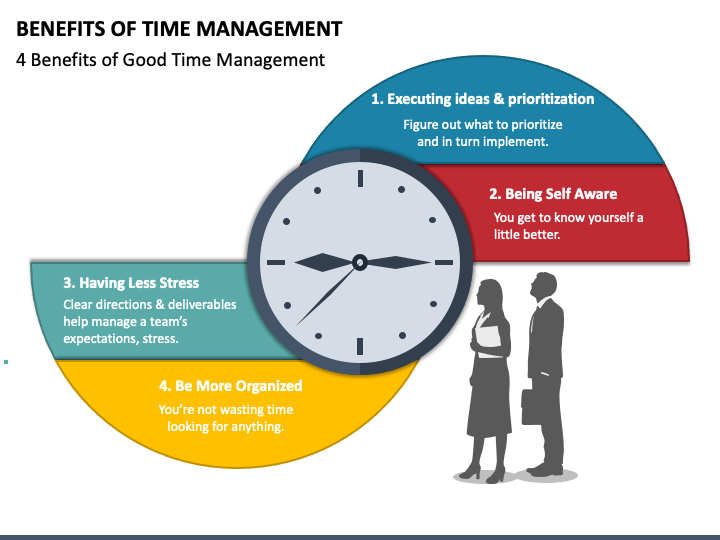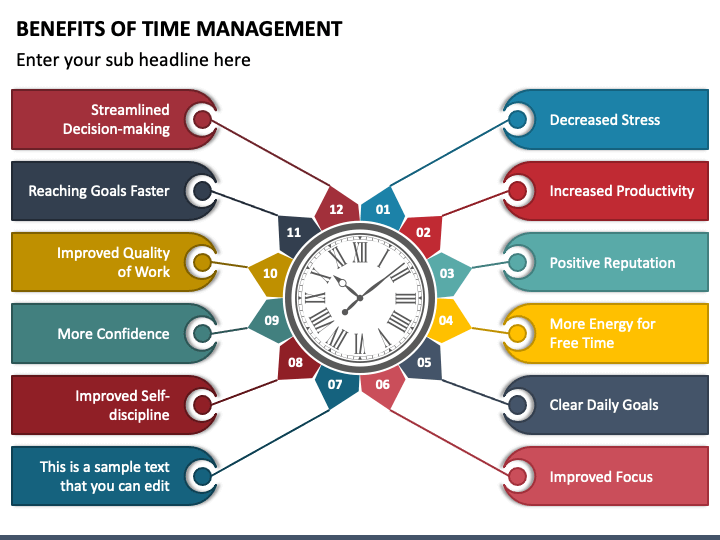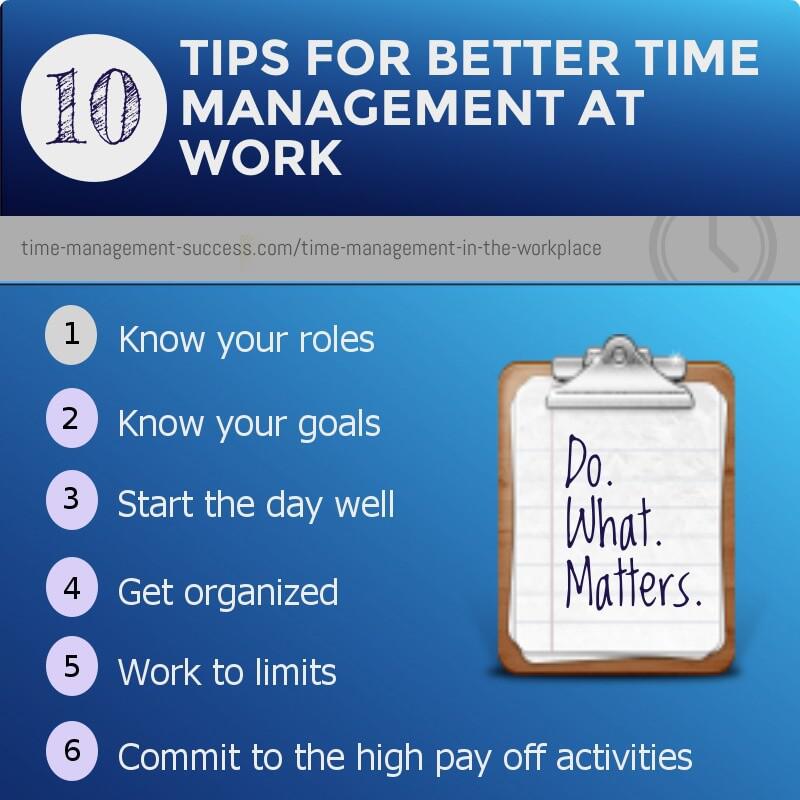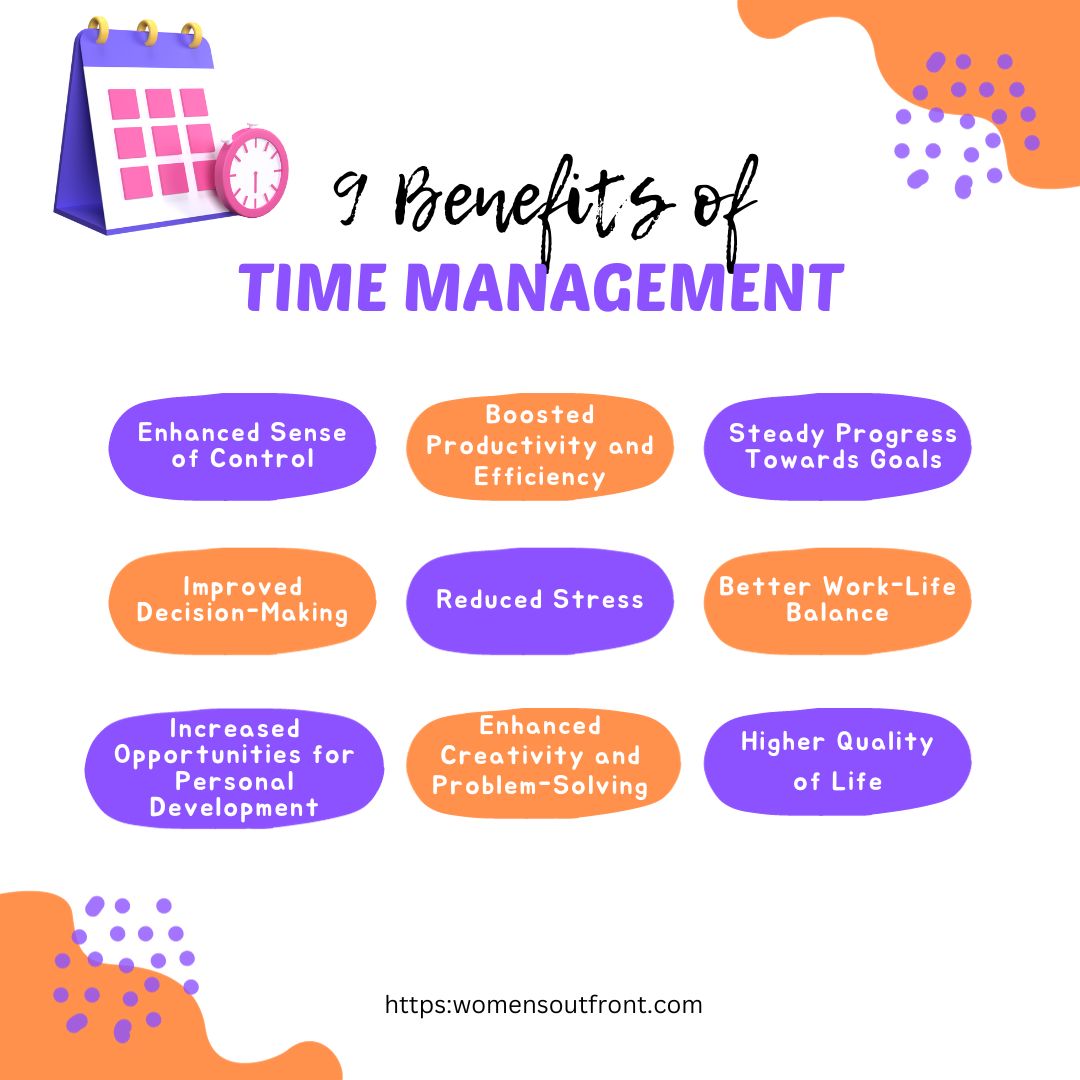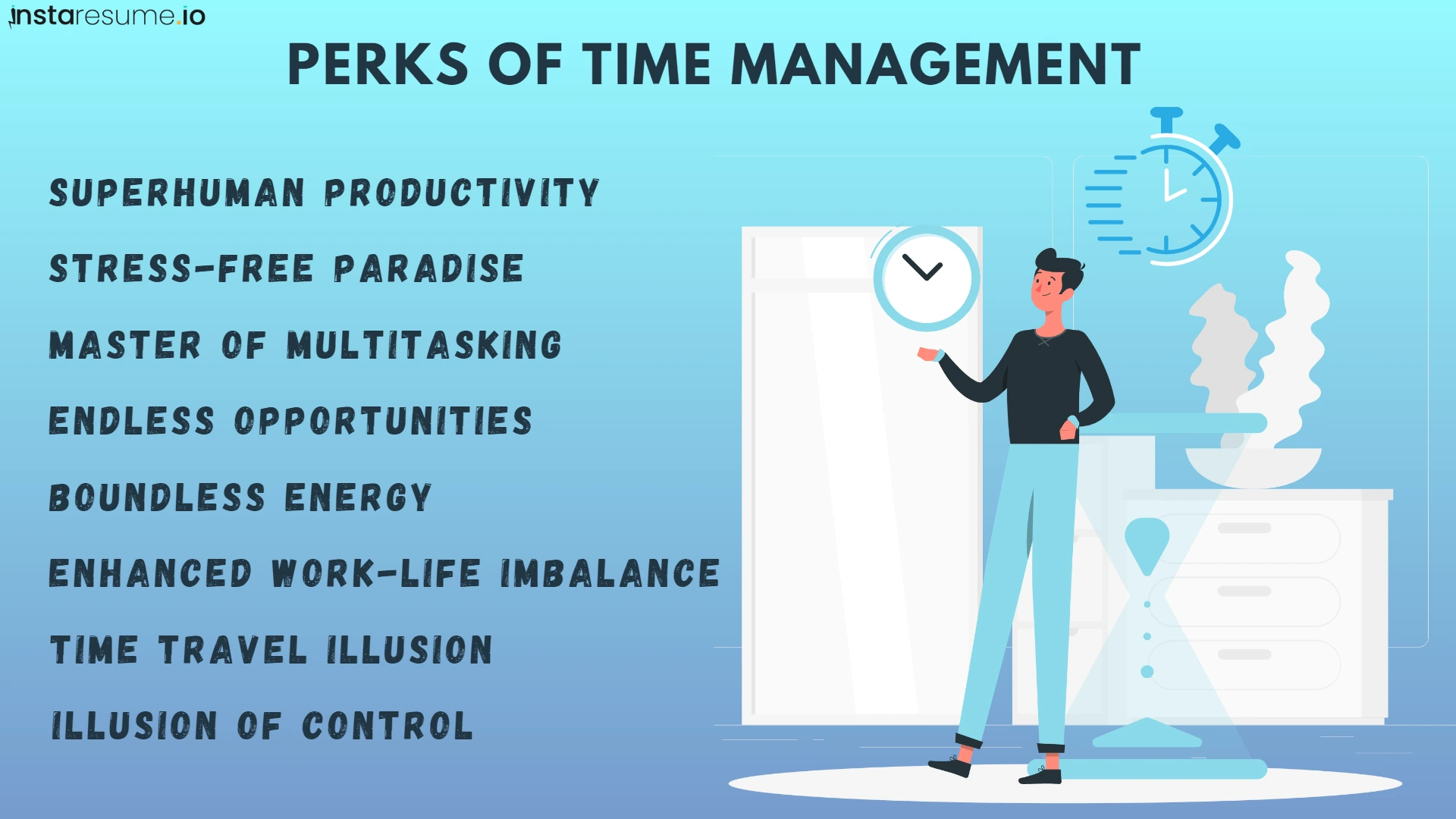Benefits Of Time Management In The Workplace

In today's relentlessly paced work environment, where deadlines loom and demands escalate, the ability to effectively manage time isn't merely a desirable skill; it's a critical determinant of individual and organizational success. The consequences of poor time management ripple through workplaces, manifesting as increased stress, diminished productivity, and ultimately, a compromised bottom line.
This article delves into the multifaceted benefits of effective time management in the workplace. It explores how mastering this skill can revolutionize productivity, reduce stress, improve work-life balance, and contribute to a more positive and efficient work environment, supported by research and expert opinions.
Enhanced Productivity and Efficiency
At its core, time management is about maximizing productivity. By prioritizing tasks, setting realistic goals, and allocating time effectively, employees can accomplish more in less time.
According to a study by the Project Management Institute, organizations with effective time management practices are 28% more likely to report successful project outcomes. This translates to a direct positive impact on the organization's profitability and competitive edge.
Reduced Stress and Improved Well-being
Chronic stress, often fueled by feeling overwhelmed and out of control, is a pervasive issue in modern workplaces. Poor time management significantly contributes to this problem.
When employees struggle to manage their workload, they often experience increased anxiety, burnout, and decreased job satisfaction. Conversely, effective time management empowers individuals to take control of their schedules, leading to a sense of calm and accomplishment.
The American Institute of Stress reports that 40% of workers experience job burnout. Investing in time management training can be a proactive step toward mitigating this costly and debilitating issue.
Improved Work-Life Balance
The lines between work and personal life have blurred considerably, making it challenging to maintain a healthy balance. Effective time management is crucial for creating boundaries and protecting personal time.
By prioritizing tasks and setting realistic deadlines, employees can avoid the need to constantly work late or bring work home, allowing them to dedicate time to personal pursuits and relationships. A balanced lifestyle is essential for long-term well-being and sustained productivity.
Better Decision-Making
When employees are constantly under pressure and feeling rushed, their decision-making abilities can suffer. Effective time management creates space for thoughtful consideration and strategic planning.
By allocating time for research, analysis, and reflection, individuals can make more informed and effective decisions, leading to better outcomes for the organization. Hastily made decisions often result in costly errors and missed opportunities.
Enhanced Collaboration and Communication
Effective time management facilitates better collaboration and communication within teams. When individuals are organized and meet deadlines, it reduces the likelihood of delays and disruptions, promoting a smoother workflow.
Clear communication about timelines, priorities, and expectations is essential for successful teamwork. When everyone is on the same page, projects are more likely to be completed on time and within budget.
Increased Professional Development
Time management frees up space for professional development and learning. Employees who can effectively manage their workload are more likely to have time to attend workshops, conferences, or pursue online courses.
Investing in skills development is crucial for staying competitive in today's rapidly evolving job market. Furthermore, time management skills themselves are a valuable asset that can enhance career prospects.
The Organizational Perspective
The benefits of time management extend far beyond the individual employee, positively impacting the entire organization. Companies with a culture of effective time management tend to be more efficient, profitable, and innovative.
Investing in time management training for employees is a strategic investment that yields significant returns. It fosters a more productive, engaged, and resilient workforce.
Implementing Effective Time Management Strategies
Several strategies can be implemented to foster a culture of effective time management in the workplace. Prioritization techniques, such as the Eisenhower Matrix (urgent/important), can help employees focus on the most critical tasks.
Time blocking, a technique that involves scheduling specific blocks of time for particular tasks, can help prevent distractions and ensure that important work gets done. The Pomodoro Technique, which involves working in focused bursts with short breaks, can enhance concentration and prevent burnout.
Technology also plays a crucial role in time management. Project management software, calendar applications, and task management tools can help individuals and teams stay organized and track progress.
Looking Ahead
In an increasingly demanding and competitive world, the ability to effectively manage time will only become more critical. Organizations that prioritize time management training and create a culture of efficiency will be best positioned to thrive.
By empowering employees to take control of their time, businesses can unlock their full potential and achieve sustainable success. The key is to view time management not as a burden but as an opportunity to enhance productivity, reduce stress, and create a more fulfilling and balanced work life for everyone.
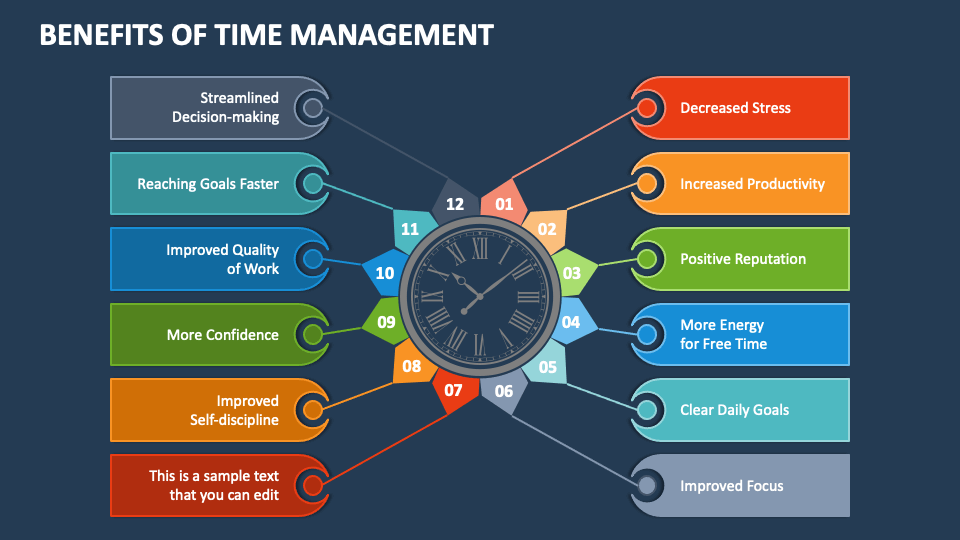
![Benefits Of Time Management In The Workplace Importance of Time Management in the Workplace [Detailed Guide]](https://www.proofhub.com/articles/wp-content/uploads/2024/04/Artboard1_2.jpg)


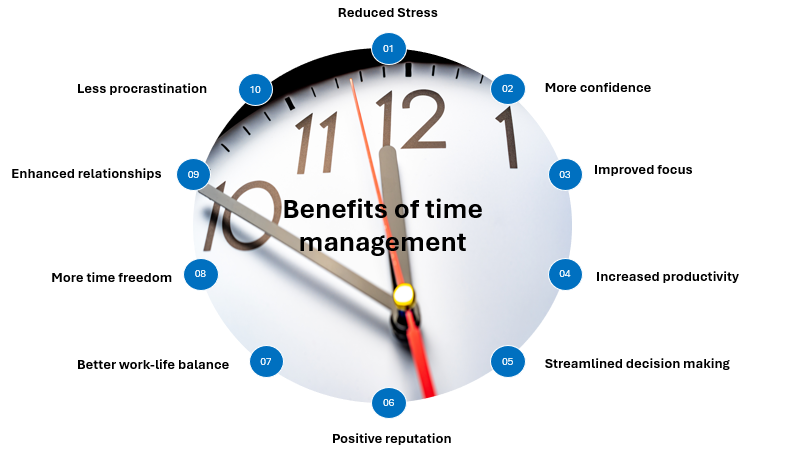
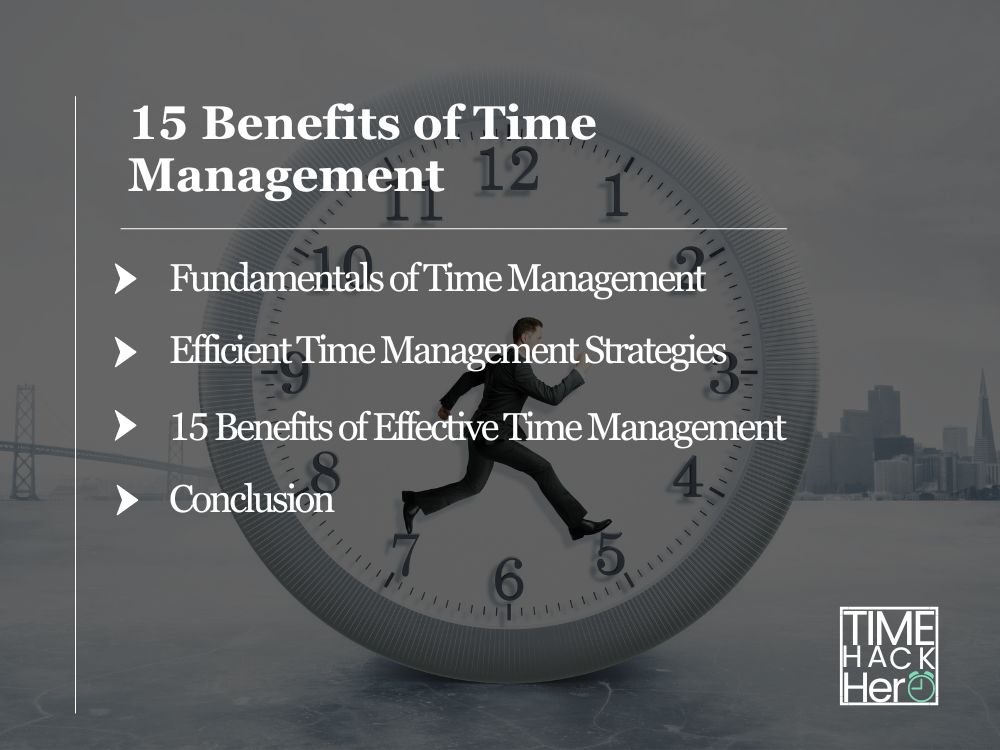

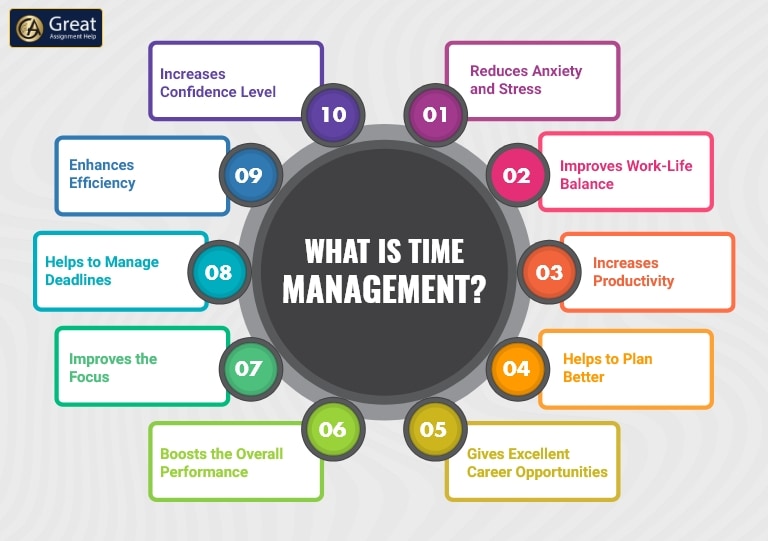
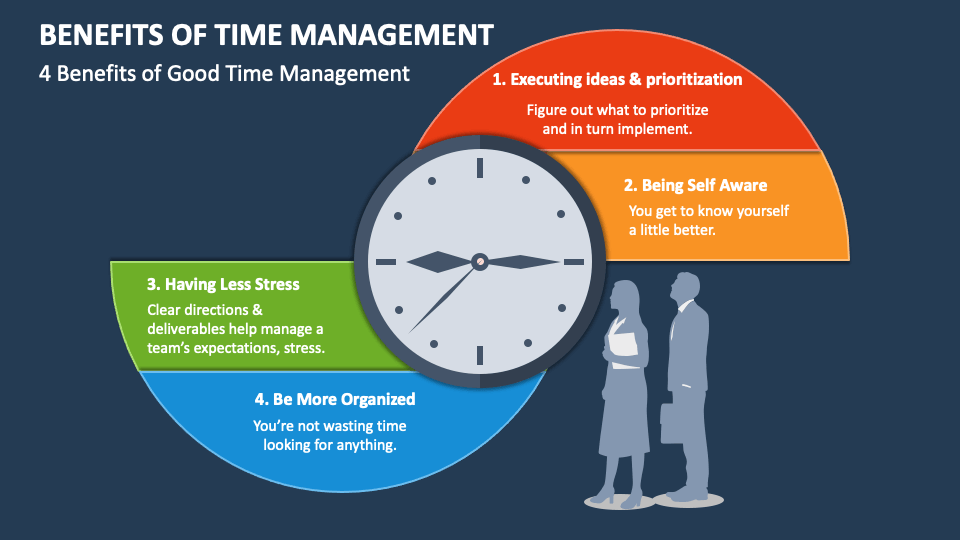
.jpg)
